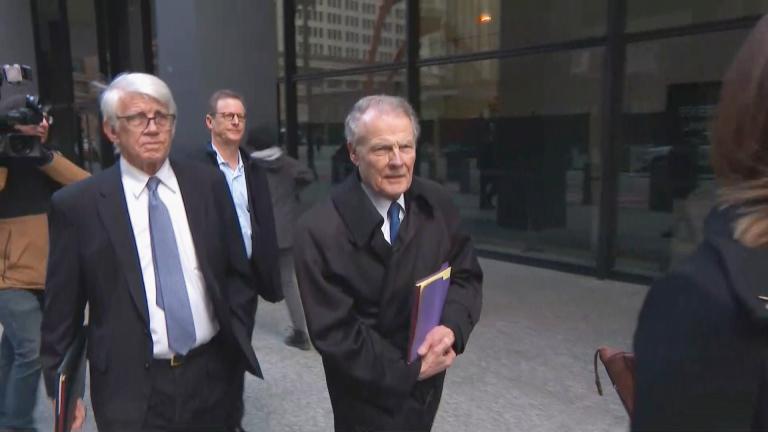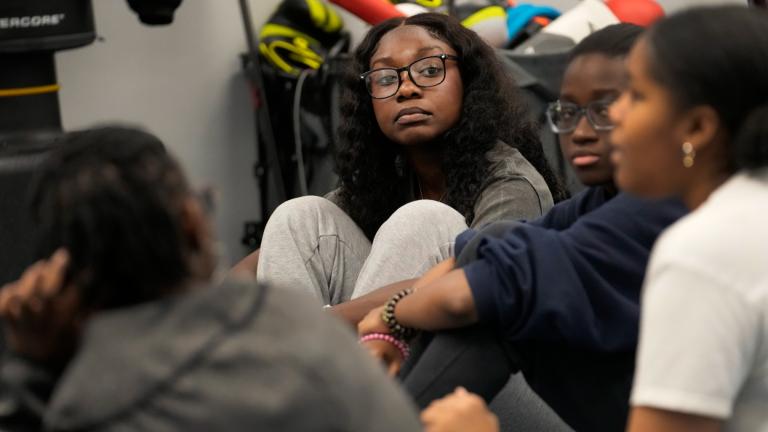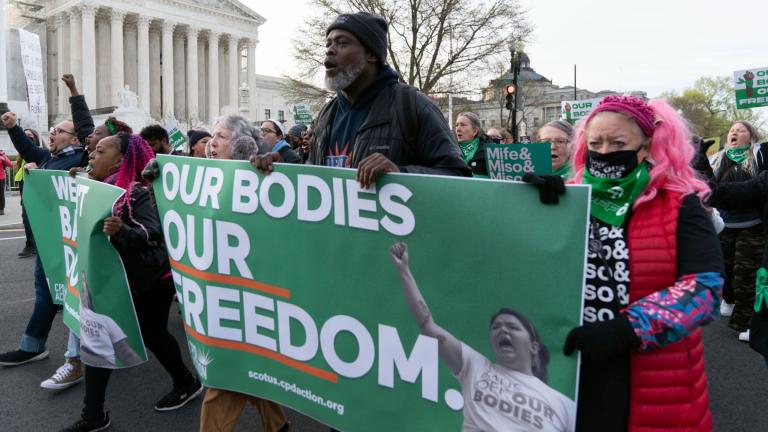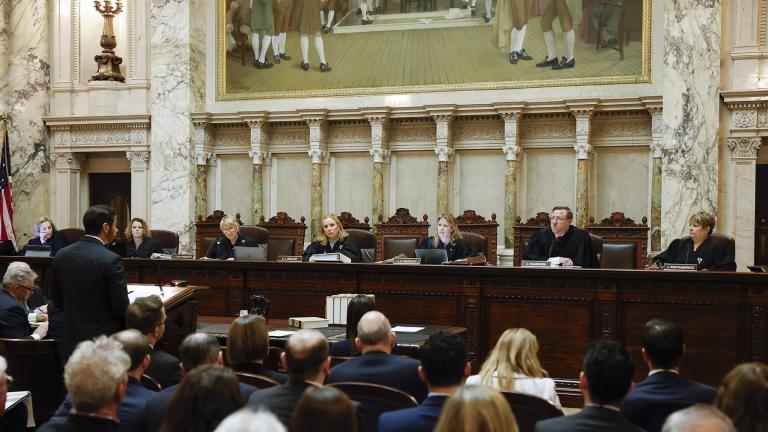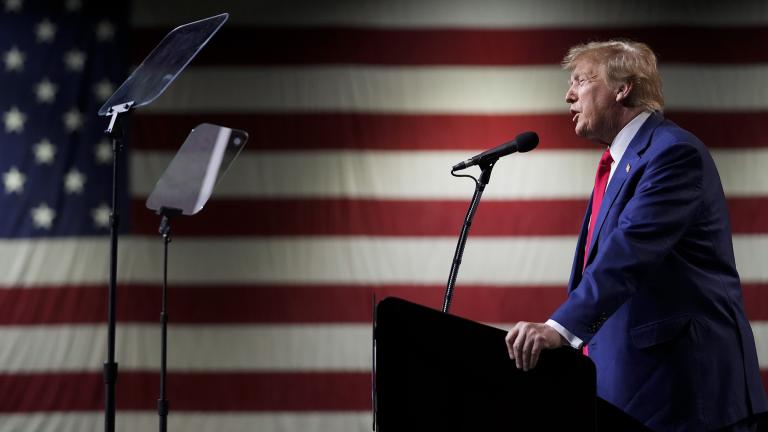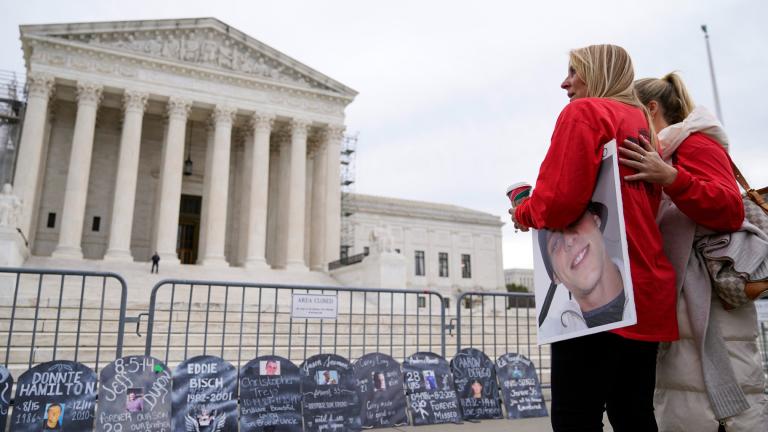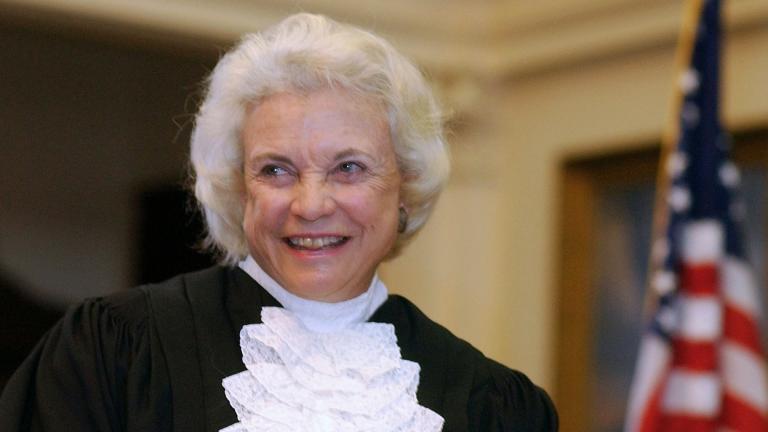The U.S. Supreme Court on Monday heard oral arguements in a case that could have wide-ranging impacts on bribery cases like the one involving former Illinois House Speaker Michael Madigan.
Supreme Court
When the Supreme Court ended affirmative action in higher education, it left the college essay as one of few places where race can play a role in admissions decisions. For many students of color, instantly more was riding on the already high-stakes writing assignment.
In nearly 90 minutes of arguments, a consensus appeared to emerge that the abortion opponents who challenged the FDA’s approval of the medication, mifepristone, and subsequent actions to ease access to it, lack the legal right or standing to sue.
Supreme Court Again Confronts the Issue of Abortion, This Time Over Access to Widely Used Medication
Two years after the Supreme Court overturned Roe v. Wade, abortion opponents on Tuesday will ask the high court to ratify a ruling from a conservative federal appeals court that would limit access to the medication mifepristone.
His lawyers have indicated they will file an emergency appeal with the court, just four days after the justices heard Trump’s separate appeal to remain on the presidential ballot despite attempts to kick him off because of his efforts following his election loss in 2020.
The ban on Chicago police officers belonging to extremist groups takes effect Saturday. The U.S. Supreme Court took a pass on the latest challenge to Illinois’ assault weapons ban. And why it took decades to prove former Ald. Ed Burke's corruption and abuse of power.
The U.S. Supreme Court on Monday denied to take up a petition filed by state Rep. Dan Caulkins, R-Decatur, that sought to overturn a ruling on a related case he’d brought before the Illinois Supreme Court.
The court will be considering for the first time the meaning and reach of a provision of the 14th Amendment barring some people who “engaged in insurrection” from holding public office. The amendment was adopted in 1868, following the Civil War.
Former President Donald Trump has been kicked off the ballot in both Maine and Colorado. At issue is whether Trump is disqualified from making another presidential run under the 14th Amendment due to engaging in insurrection.
Crucial battles over abortion, gerrymandering, voting rights and other issues will take center stage in next year’s elections for state supreme court seats — 80 of them in 33 states.
First, Colorado’s Supreme Court ruled that former President Donald Trump wasn’t eligible to run for his old job in that state. Then, Maine’s Democratic secretary of state ruled the same for her state. Who’s next?
The ruling is a win for Trump and his lawyers, who have sought repeatedly to delay this and other criminal cases against him as he seeks to reclaim the White House in 2024.
The Colorado decision marked the first time in history the provision has been used to prohibit someone from running for the presidency, and the U..S. Supreme Court is likely to have the final say over whether the ruling will stand.
The law prohibits the possession, manufacture or sale of semiautomatic rifles and high-capacity magazines. It takes effect Jan. 1.
The agreement hammered out with state and local governments and victims would provide billions of dollars to combat the opioid epidemic. The Sacklers would contribute up to $6 billion and give up ownership of the company, but retain billions more.
Retired Supreme Court Justice Sandra O’Connor died of complications related to advanced dementia and a respiratory illness, the Supreme Court said in a news release.

